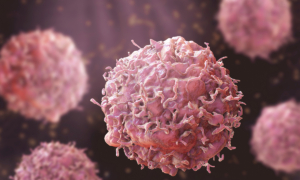When it comes to a healthy diet, the age-old advice of “you are what you eat” may be missing a piece of the puzzle. Emerging research now suggests that when you eat could be just as important as what you eat for optimizing metabolism, weight, and overall well-being.
The Science of Timed Eating
Chrononutrition is an emerging field that studies how timing food intake can interact with the body’s circadian rhythm, and therefore with a person’s health.
Our biological clock runs according to circadian rhythms—24-hour cycles that control many physiological aspects, including digestion, hunger, and metabolism. This circadian clock system regulates sleep, energy levels, and body temperature.
Chrononutrition investigates how the body responds to food at different times of the day. This method includes studying time-restricted eating, fasting, meal regularity, and specific eating times.
It’s important that we eat a balanced diet on a schedule that aligns with the 24-hour circadian schedule, Emily Feivor, a registered dietician at Long Island Jewish Forest Hills Hospital in New York, told The Epoch Times. This helps improve glucose and insulin responsiveness, as well as balance hormones such as cortisol and leptin, she said. “In turn this better controls blood sugar and weight management,” Feivor added.
One study found that people who ate lunch late lost less weight than those who ate lunch early.
The Health Promise of Chrononutrition
Research into
chrononutrition could potentially find new ways to prevent or treat chronic conditions like obesity, heart disease, high blood pressure, and diabetes. A special issue of the Journal of the Academy of Nutrition and Dietetics published last month showcases new studies in this field, reinforcing the idea that when we eat is as crucial as what we eat.
One of the highlighted studies found that late time-restricted eating (LTRE), which involves eating during an eight-hour window later in the day—eating all food between 12:00 pm and 8:00 pm without calorie counting—could significantly improve the health of people living with Type 2 diabetes.
“Many adolescents prefer to go to bed later and sleep in later, so an early eating window may not align with developmental and social schedules that often shift their food consumption to later in the day,” Dr. Alaina P. Vidmar, an associate professor in pediatric endocrinology and a board-certified pediatric obesity medicine specialist and lead researcher, said in a press release.
The trial findings showed that late time-restricted eating is safe and acceptable for the subset of adolescents studied, noted Vidmar. It can lead to significant weight loss, improved liver health, and reduced calorie intake without affecting sleep, eating habits, or physical activity.
Advice From an Obesity Specialist
It’s better not to eat too late, or eat less at night, Dr. Shiara Ortiz-Pujols, obesity medicine specialist at the department of surgery at Staten Island University Hospital in New York, told The Epoch Times. People who consume their largest meal later in the day, typically at dinner, often face a higher risk of weight management issues, she noted.
As the day progresses, our bodies naturally slow down, which can affect our digestion and metabolism. Our individual food needs are influenced by factors such as age, sex, and activity level, Ortiz-Pujols said.
Additionally, our daily activity levels play a role in determining the body’s caloric needs.
“A more sedentary person will require less caloric intake compared to a more active person,” Ortiz-Pujols noted. “This is why many people who were athletes in their younger years struggle with weight gain later in life as they no longer maintain those high activity levels but may continue to eat as if they were very active.”
Nutrition is highly personalized. What works for one person may not work for another, as a person’s needs, preferences, and lifestyles not only vary but also change with time.
Nutrition discussions often focus on what not to eat and on restrictive diets that are difficult to maintain over the long term, Dr. Ortiz-Pujols said. “Instead, we should focus the conversation on having a varied diet that is inclusive of proteins, fats, carbs, fruits, and vegetables and learning more and incorporating better choices into our diets,” she added.
Many people struggle with the idea of eating solid food in the morning. “For these individuals, I often recommend protein shakes, as it will help to start the day with protein, while not actually eating something,” Ortiz-Pujols said.













